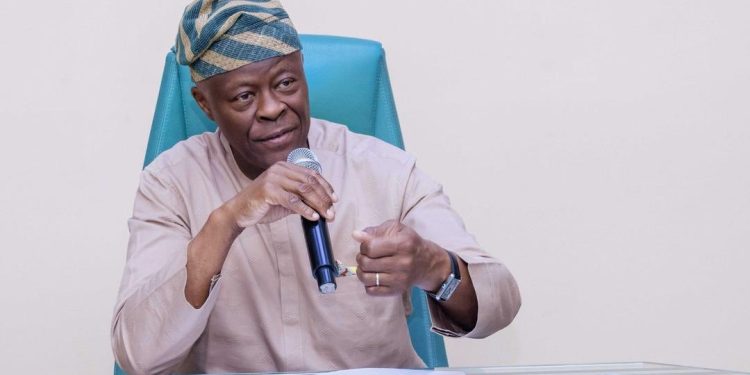FG ends revenue deductions by FIRS, Customs, and NUPRC; all collections now to go directly to FAAC to boost transparency and fiscal efficiency.
In a major fiscal reform aimed at boosting transparency and maximizing national revenue, the Federal Government has announced the complete termination of deductions by revenue-generating agencies such as the Federal Inland Revenue Service (FIRS), the Nigeria Customs Service (NCS), and the Nigerian Upstream Petroleum Regulatory Commission (NUPRC).
The announcement was made in Abuja by the Minister of Finance and Coordinating Minister of the Economy, Mr. Wale Edun, during the unveiling of the National Development Update. Edun emphasized that all revenues must henceforth be remitted in full to the Federation Account Allocation Committee (FAAC), marking the end of a long-standing system where agencies retained portions of funds as collection costs.
According to the minister, the decision aligns with President Bola Tinubu’s fiscal reform agenda designed to strengthen accountability and ensure that more financial resources are available for federal, state, and local governments.
“The Constitution says funds should flow from revenue-collecting agencies into the Federation Account and be distributed according to the set formula and that is now being done,” Edun stated.
He explained that while Nigeria’s total revenue had seen an upward trend, a significant portion was previously withheld by these agencies for administrative purposes. Despite the deductions, there was little visible impact on national development, prompting the government’s decision to end the practice.
“We have been mandated by His Excellency, Mr. President, to take a look at deductions not just for the cost of collection, but deductions generally,” he added.
Edun revealed that most deductions were already removed during the last FAAC allocation, ensuring that future revenues would fully reflect in national distributions.
Reinforcing Social Protection and Economic Resilience
Beyond fiscal reforms, Edun also highlighted ongoing social protection initiatives under President Tinubu’s Renewed Hope Agenda. He acknowledged that the government’s economic reforms have temporarily raised the cost of living but assured that targeted support systems are being implemented to cushion the impact on vulnerable Nigerians.
“Each beneficiary is biometrically identified to ensure transparency,” he said, commending the Nigerian Identity Management Company (NIMC) for its role in the process.
The minister disclosed that by the end of October, about 10 million households representing nearly 50 million Nigerians would benefit from the first phase of direct cash transfers. The program aims to reach all 50 million targeted households before the end of the year.
Background on Agency Retentions
Previously, agencies like NUPRC retained around four percent of royalties and rents collected for the Federation Account. In 2024, FIRS kept N254.82 billion as collection costs and was projected to retain N43.83 billion for the first half of 2025.
Similarly, the Nigeria Customs Service had been allocated seven percent of the cost of collection but recently shifted to a four percent Free on Board (FOB) levy on imports, following a directive from the House of Representatives in August 2025. This levy now serves as Customs’ main funding source.
The government’s latest policy effectively centralizes all revenues into the Federation Account, ensuring fairer distribution and improved financial efficiency across all tiers of government.


